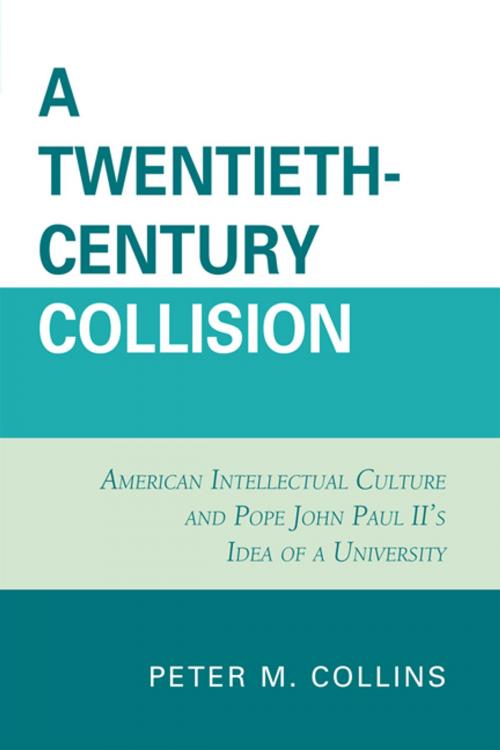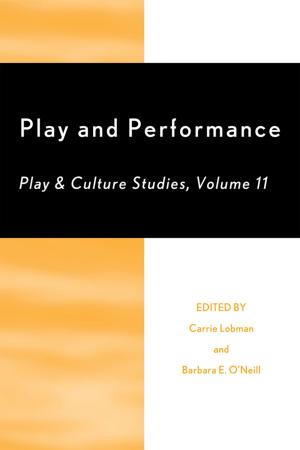A Twentieth-Century Collision
American Intellectual Culture and Pope John Paul II's Idea of a University
Nonfiction, History, Modern, 20th Century| Author: | Peter M. Collins | ISBN: | 9780761846284 |
| Publisher: | UPA | Publication: | July 16, 2009 |
| Imprint: | UPA | Language: | English |
| Author: | Peter M. Collins |
| ISBN: | 9780761846284 |
| Publisher: | UPA |
| Publication: | July 16, 2009 |
| Imprint: | UPA |
| Language: | English |
A Twentieth-Century Collision explores intellectual culture in the United States during the twentieth century, a topic which cannot be understood without attention to the gradual narrowing of the scope of (academic) philosophy and its diminishing influence. This 'narrowing' signifies a growing indifference to, and elimination of, genuinely metaphysical and prescriptively ethical questions, as well as the bifurcation of faith and reason. American Catholic universities, it is contended in this book, can render a seriously-needed contribution to combating the negative effects of this historical development, one of which is the separation of questions concerning the ultimate meaning of life from rational inquiry. This thesis is pursued by 1) reviewing a highly selective_but also highly representative_sample of pertinent mainstream philosophical principles, and 2) comparing them with principles of Pope John Paul II found in three documents in which he elaborates his views on the nature and role of philosophy (and its relationship to theology) in Catholic higher education. This project is not unrelated to recent, persistent criticism that American Catholic universities have forfeited their identity_and thus their unique contribution to American cultural pluralism.
A Twentieth-Century Collision explores intellectual culture in the United States during the twentieth century, a topic which cannot be understood without attention to the gradual narrowing of the scope of (academic) philosophy and its diminishing influence. This 'narrowing' signifies a growing indifference to, and elimination of, genuinely metaphysical and prescriptively ethical questions, as well as the bifurcation of faith and reason. American Catholic universities, it is contended in this book, can render a seriously-needed contribution to combating the negative effects of this historical development, one of which is the separation of questions concerning the ultimate meaning of life from rational inquiry. This thesis is pursued by 1) reviewing a highly selective_but also highly representative_sample of pertinent mainstream philosophical principles, and 2) comparing them with principles of Pope John Paul II found in three documents in which he elaborates his views on the nature and role of philosophy (and its relationship to theology) in Catholic higher education. This project is not unrelated to recent, persistent criticism that American Catholic universities have forfeited their identity_and thus their unique contribution to American cultural pluralism.















